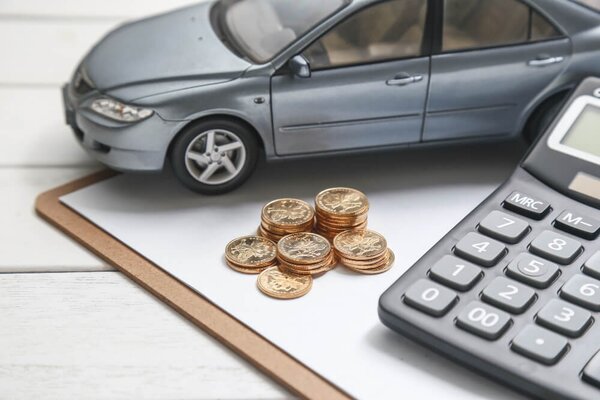What Exactly Is the Remittance Basis?
Living in the UK but earning money abroad? The remittance basis might be relevant to you. It's a special tax arrangement for people who live here but aren't permanently settled.
Think of it as a choice about how you pay UK tax on your overseas money. Here's the basic idea: you only pay UK tax on foreign income and gains when you actually bring them into Britain.
Money that stays outside the UK stays outside the UK tax system too. This is quite different from how most people pay tax, where UK residents pay tax on everything they earn worldwide.
The remittance basis turns that on its head. Your foreign earnings only become taxable here when you transfer them, spend them, or use them in the UK.
However, there's a catch actually, there are several catches. Whether this arrangement saves you money depends entirely on your situation.
Who Can Actually Use This Arrangement?
You need to tick specific boxes to qualify. First, you must be a UK resident for tax purposes, which usually means spending enough time here that HMRC considers this your home.
But here's the twist: you also need to be "not domiciled" in the UK. Domicile is different from residence or nationality it's essentially where you consider your permanent home to be.
Most people inherit their domicile from their father when they're born. You can have British citizenship but not be domiciled here, which is what opens the door to claiming remittance basis.
If your unremitted foreign income and gains are under £2,000 in a tax year, you automatically get remittance basis treatment. No claim needed, no charges to pay.
Once you've lived in the UK for a while, things get pricier. Been here for seven of the last nine years? You'll face an annual charge if you want to keep using this arrangement.
That charge starts at £30,000 a year. After twelve years of UK residence in any fourteen-year period, it jumps to £60,000 annually.
Your nationality doesn't matter for these rules. Someone from France, Australia, or anywhere else can potentially use the remittance basis if their domicile is outside the UK.

How Much Does Claiming Remittance Basis Actually Cost?
The price tag varies depending on how long you've been around. New arrivals or short-term residents with small amounts of foreign income pay nothing extra.
If your unremitted overseas income and gains stay below £2,000, you're sorted. But stick around longer, and HMRC starts charging for the privilege.
Seven years of UK residence in any nine-year period means paying £30,000 per year if you want to claim remittance basis. Twelve years of residence in any fourteen-year period doubles that charge to £60,000 annually.
So you need to do the maths. Does the tax you save on unremitted foreign income outweigh the charges and lost allowances?
What Counts as Bringing Money to the UK?
The remittance rules are broader than you might think. Obviously, transferring money from an overseas bank account to a UK account counts as straightforward remittance.
But using a foreign credit card in Britain and paying it off with overseas income? That's a remittance too. Buying something abroad with your foreign earnings and then bringing it to the UK is also caught.
Even sending money to family members in the UK counts as your remittance. Paying for your child's school fees from an overseas account is taxable under these rules.
Many people keep separate bank accounts or credit cards just for their UK-sourced income to avoid accidentally creating remittances. Some even have special "clean capital" accounts containing money from before they became UK resident.

Is This Right for Your Situation?
The decision isn't always obvious. Start by looking at your numbers how much foreign income and gains do you have each year that you don't need in the UK?
If it's substantial, and you've been here less than seven years, remittance basis might save you money. But factor in lost allowances, as losing your personal allowance costs you tax on the first chunk of UK income.
Consider how long you're planning to stay. If Britain is your permanent home now, paying tax on worldwide income might be simpler in the long run.
The administrative burden matters too. Claiming remittance basis means more paperwork, a more involved Self Assessment return, and you'll likely need professional help, which costs money.
There's no one-size-fits-all answer. Your personal circumstances, income levels, and plans all matter when making this decision.
What's Happening with These Rules?
Big changes are coming from April 2025. The government is scrapping the remittance basis for new arrivals and replacing it with a simpler four-year exemption.
If you become UK resident from April 2025 onwards, you won't claim remittance basis. Instead, you'll automatically get four years where your overseas income and gains aren't taxed here.
No charges to pay, no claims to make, no loss of allowances. It just happens automatically, making life much simpler for new arrivals.
The exact details are still being finalised, but the direction is clear. The non-dom regime as it's existed for decades is ending, representing the biggest shake-up in a generation.
If you're currently using remittance basis, don't wait until April 2025 to think about this. Start planning now to make the most of any transitional arrangements.

Getting Your Tax Sorted Properly
Remittance basis rules are genuinely tricky. Even tax professionals specialise in this area because it's so involved, with domicile law alone being a rabbit hole of case law.
If you're earning money overseas and living in the UK, speak to someone who knows these rules inside out. They can model different scenarios and work out whether claiming remittance basis actually saves you money.
With the 2025 changes approaching, that advice becomes even more valuable. What should you do with foreign income you've kept overseas, and is there a smarter way to structure things?
The remittance basis can genuinely save money for some people. For others, it's more hassle than it's worth, especially when you factor in professional fees.
Pie is the UK's first personal tax app, built specifically to help working people get their tax sorted without the usual stress. We're the only self-assessment solution combining bookkeeping, live tax calculations, straightforward tax return filing, and expert advice when you need it.
Visit Pie and see how we can help you stay on top of everything, including those tricky remittance basis decisions. We'll guide you through the complexity so you can focus on what matters most.











